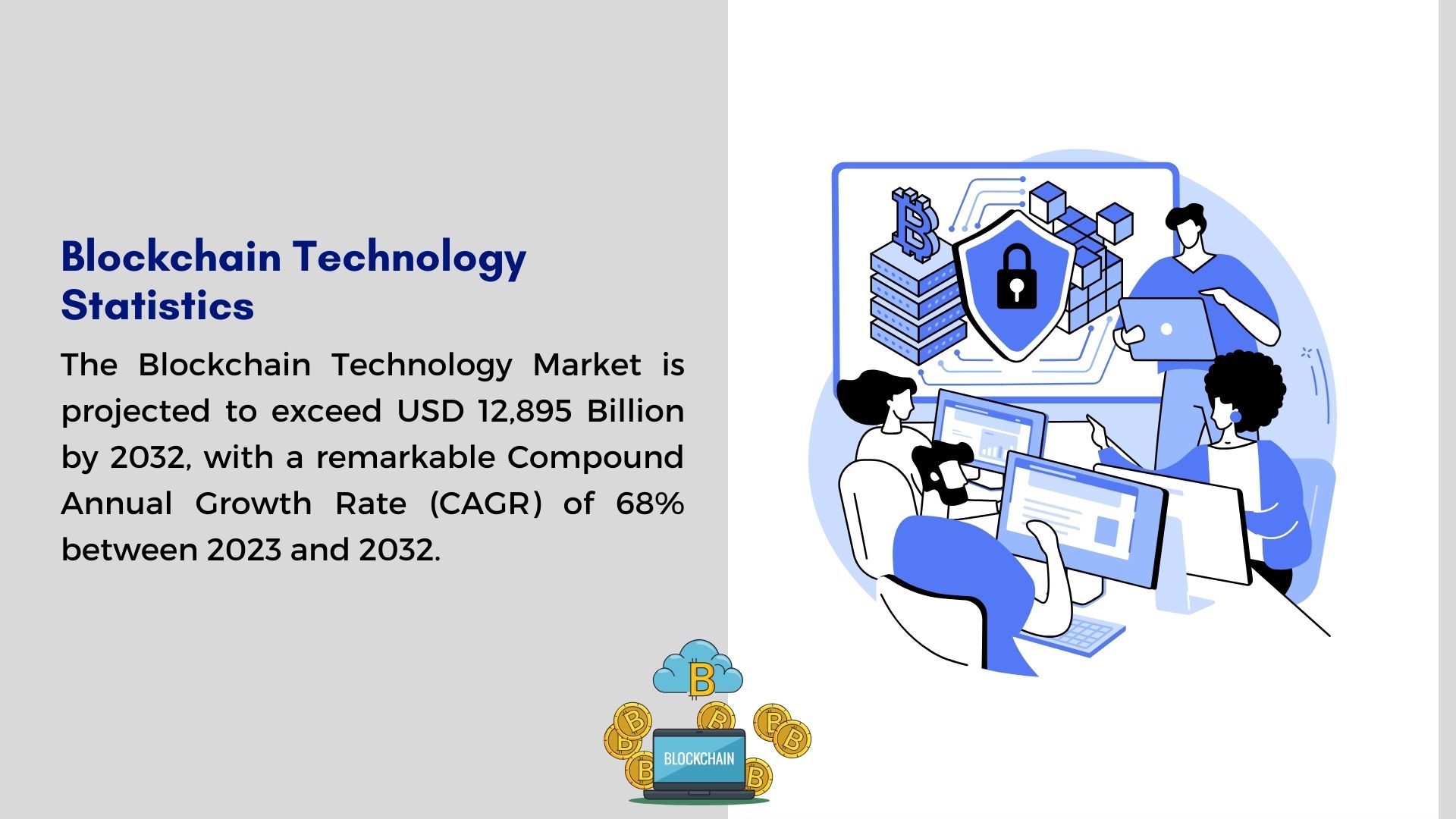Overview
The global Digital Transformation Market is experiencing rapid growth, projected to reach an impressive USD 8,567.4 billion by 2033, with a strong compound annual growth rate (CAGR) of 26.3% during the forecast period from 2024 to 2033. Digital transformation involves integrating digital technologies into various aspects of an organization’s operations to drive fundamental changes and improve overall performance. This market encompasses a wide range of solutions and services, including cloud computing, big data analytics, artificial intelligence (AI), and the Internet of Things (IoT), among others.
The digital transformation market is experiencing rapid growth as organizations across various industries embrace digital technologies to revolutionize their operations and customer experiences. Several key factors are driving this growth. Firstly, there is an increasing demand for enhanced customer experiences, prompting businesses to adopt digital solutions to gain insights into customer preferences and behaviors. Technological advancements, such as AI, IoT, and big data analytics, are also playing a crucial role by enabling automation, data-driven decision-making, and new business models. Moreover, organizations are leveraging digital transformation to optimize costs, improve operational efficiency, and gain a competitive advantage in the market.
However, the digital transformation journey is not without challenges. Legacy systems and infrastructure pose hurdles for organizations looking to integrate new digital technologies. Data privacy and security concerns, such as data breaches and privacy regulations, require careful consideration to build trust with customers. Additionally, the shortage of skilled professionals with expertise in digital technologies presents a skills gap that organizations must address.
These challenges also open up opportunities for new entrants in the digital transformation market. One opportunity lies in developing niche solutions or services that cater to specific industry needs, addressing pain points that established players may overlook. Collaborations and partnerships with established technology providers or industry-specific organizations can provide new entrants with resources, expertise, and access to a wider customer base. Furthermore, offering flexible and customizable solutions that meet the unique requirements of organizations can attract customers seeking tailored digital transformation approaches.

Tap into Market Opportunities and Stay Ahead of Competitors – Get Your Sample Report Now
Digital Transformation Statistics
- The global digital transformation market is anticipated to soar to an impressive USD 8,567.4 billion by 2033, demonstrating a robust Compound Annual Growth Rate (CAGR) of 26.3% from 2024 to 2033.
- Adoption of cutting-edge digital technologies like Artificial Intelligence (AI), cloud computing, and Internet of Things (IoT) is fueling market expansion, contributing significantly to the projected 26.3% CAGR from 2024 to 2033.
- By 2023, digitally transformed entities are forecasted to contribute over 50% of the global Gross Domestic Product (GDP), underscoring the pivotal role of digital transformation in fostering economic growth.
- Solutions dominate the market, capturing over 69.7% share in 2023, fueled by the burgeoning demand for digital business solutions across diverse industries.
- On-premise solutions maintain a dominant position, securing more than 63.9% share in 2023, favored for their data security and customization advantages.
- Big Data & Analytics emerge as market leaders, capturing more than 30.1% share in 2023, driven by the exponential proliferation of data across sectors.
- Large enterprises spearhead digital transformation, capturing over 61.5% share in 2023, leveraging their financial resources and global operations.
- The Banking, Financial Services, and Insurance (BFSI) sector dominates with a larger revenue share of 27.4% in 2023, propelled by the imperative for enhanced customer experience and regulatory compliance.
- North America emerges as the frontrunner, boasting a substantial market share of over 41.9% in 2023, bolstered by its highly developed digital infrastructure and widespread adoption of digital technologies.
- 40% of organizations have escalated their digital transformation endeavors by augmenting technology usage and budget allocation.
- Enterprise organizations, comprising over 1,000 employees, exhibit a commendable 66% adoption rate of digital transformation strategies, while 49% of small businesses have embraced such strategies.
- 89% of all companies have either embraced a digital-first business strategy or are in the process of doing so, according to Kissflow. This statistic underscores the widespread acknowledgment of digital technology’s critical role in driving business success.
- Digital transformation is deemed a top priority for 74% of organizations, as highlighted by Kissflow. This indicates a significant majority of businesses are actively seeking to integrate digital technologies into their core operations.
- A remarkable 90% of businesses are engaged in digital initiatives, highlighting the universal push towards digital transformation, as reported by Doitsoftware. This reflects the concerted effort across industries to adapt to a digital-first approach.
- The investment in digital transformation is anticipated to surge, with global spending projected to reach $3.4 trillion by the year 2026, according to Quixy. This projection exemplifies the financial commitment organizations are willing to make towards adopting digital technologies.
- The World Economic Forum predicts that digital transformation will contribute an additional $100 trillion to the world economy by 2025, as stated by Quixy. This illustrates the significant economic impact digital transformation initiatives are expected to have globally.
- Market pressures are identified as the leading drivers behind digital transformation efforts. Specifically, 51% of these initiatives stem from the pursuit of growth opportunities, while 41% are motivated by the need to mitigate increased competitive pressure, as reported by Prophet via Quixy. This highlights the dual forces of opportunity and competition as key catalysts for digital adoption.
Emerging Trends in Digital Transformation
- Artificial Intelligence and Machine Learning (AI/ML): Increasing utilization of AI and ML to automate processes, personalize customer experiences, and analyze large datasets for more informed decision-making.
- Edge Computing: Growing momentum of edge computing, driven by the proliferation of Internet of Things (IoT) devices. Edge computing processes data closer to the source, reducing latency and enhancing data processing speed.
- Cybersecurity Mesh: Expansion of cybersecurity mesh to ensure security across all digital platforms and endpoints. This approach provides flexibility, scalability, and reliability in addressing cyber threats as digital transformation expands.
- Hybrid Work Models: Emergence of hybrid work models that combine remote and in-office arrangements. This trend necessitates the development of digital solutions supporting collaboration, productivity, and security for dispersed workforces.
- Sustainable Technology: Growing emphasis on sustainability, prompting the adoption of digital solutions promoting energy efficiency, waste reduction, and environmental sustainability to align with evolving business and consumer priorities.
Top 5 Use Cases of Digital Transformation
- Enhanced Customer Experience: Utilizing data analytics and AI to personalize customer interactions across digital channels, improving engagement and satisfaction by offering tailored recommendations and experiences.
- Operational Efficiency: Automating routine tasks with Robotics Process Automation (RPA) and AI to streamline operations, reduce errors, and free up human resources for more strategic work, enhancing overall efficiency and productivity.
- Remote Work and Collaboration: Implementing cloud-based collaboration tools enabling remote work, such as video conferencing and shared digital workspaces, ensuring seamless communication and collaboration even in dispersed work environments.
- Data-Driven Decision Making: Leveraging big data and advanced analytics to inform strategic decisions, gaining insights into market trends, customer behavior, and operational performance for more informed and effective decision-making.
- Digital Marketing and Sales: Utilizing digital channels and techniques like SEO, content marketing, and social media to reach and engage customers online, enabling precise targeting and real-time measurement of marketing efforts’ impact.
Major Challenges in Digital Transformation
- Legacy Systems Integration: Overcoming the challenge of integrating legacy systems with modern digital technologies, often requiring substantial investments and complex migration processes.
- Data Security and Privacy Concerns: Addressing growing concerns around data security and privacy amidst increased digitization, necessitating robust cybersecurity measures and compliance with stringent regulations like GDPR and CCPA.
- Skill Shortages and Workforce Training: Bridging skill gaps and providing adequate training to the workforce to adapt to new digital tools and technologies, ensuring smooth transition and effective utilization of digital transformation initiatives.
- Change Management and Cultural Shifts: Managing organizational change and fostering a culture conducive to digital transformation, overcoming resistance to change and ensuring alignment of employees with the strategic objectives of digital initiatives.
- Complexity and Scalability Issues: Managing the complexity and scalability of digital transformation projects, particularly in large enterprises, to ensure seamless integration, operational efficiency, and agility in responding to evolving business needs.
Key Player Analysis
1. IBM Corporation
IBM Corporation, a global leader in technology and consulting services, is renowned for its comprehensive suite of digital transformation solutions. With a strong focus on artificial intelligence (AI), cloud computing, and data analytics, IBM helps businesses harness the power of digital technologies to drive innovation, improve operational efficiency, and enhance customer experiences. Its flagship offerings include IBM Cloud, Watson AI, and IBM Analytics.
2. Microsoft Corporation
Microsoft Corporation is a household name in the world of technology, offering a diverse portfolio of products and services aimed at enabling digital transformation. From its widely used operating system, Windows, to its cloud computing platform, Azure, and productivity suite, Office 365, Microsoft empowers businesses to embrace digital innovation and achieve their goals more efficiently.
3. Amazon Web Services, Inc.
Amazon Web Services (AWS), Inc., a subsidiary of Amazon.com, is a dominant player in the cloud computing market, providing scalable and reliable infrastructure services to businesses worldwide. AWS offers a wide range of cloud-based solutions, including computing power, storage, and database services, enabling organizations to build sophisticated applications and drive digital transformation initiatives.
4. Google LLC
Google LLC, known for its innovative products and services, is making significant strides in the digital transformation space. With offerings such as Google Cloud Platform (GCP), G Suite, and Google Analytics, Google helps businesses leverage cloud computing, collaboration tools, and data analytics to unlock new opportunities and drive growth in the digital age.
5. SAP SE
SAP SE is a global leader in enterprise software solutions, specializing in areas such as ERP (Enterprise Resource Planning), CRM (Customer Relationship Management), and business analytics. With its SAP S/4HANA platform and intelligent enterprise suite, SAP enables organizations to streamline operations, optimize processes, and innovate with confidence in today’s digital economy.
6. Cisco Systems, Inc.
Cisco Systems, Inc., a networking and telecommunications giant, plays a crucial role in enabling digital transformation through its innovative networking solutions. From network infrastructure and security to collaboration tools and IoT (Internet of Things) platforms, Cisco empowers businesses to connect, secure, and automate their operations for greater agility and efficiency.
7. Salesforce, Inc.
Salesforce, Inc. is a leading provider of cloud-based CRM solutions, helping businesses build meaningful and lasting relationships with their customers. With its Salesforce Customer 360 platform and ecosystem of apps, Salesforce enables organizations to personalize customer experiences, drive sales productivity, and accelerate digital transformation initiatives.
8. Oracle Corporation
Oracle Corporation offers a comprehensive suite of cloud applications and platform services designed to drive digital transformation across industries. From ERP and HCM (Human Capital Management) to database and analytics solutions, Oracle empowers businesses to innovate and thrive in the digital age with its robust and scalable offerings.
9. Tata Consultancy Services Limited
Tata Consultancy Services Limited (TCS) is a global leader in IT services, consulting, and business solutions, providing end-to-end digital transformation services to clients worldwide. With its expertise in areas such as cloud migration, AI, and IoT, TCS helps organizations harness the power of digital technologies to stay ahead of the competition and drive growth.
10. Accenture Plc
Accenture Plc is a multinational professional services firm offering a wide range of services, including strategy, consulting, digital, technology, and operations. With its deep industry expertise and digital capabilities, Accenture helps clients navigate complex challenges and transform their businesses for the digital age.
11. Adobe Inc.
Adobe Inc. is a global leader in digital media and marketing solutions, empowering businesses to create, manage, and deliver engaging digital experiences. With its Adobe Experience Cloud platform and creative tools, Adobe enables organizations to drive customer engagement, optimize content, and deliver personalized experiences across channels.
12. Dell Inc.
Dell Inc. is a leading provider of technology solutions, including hardware, software, and services, catering to the digital transformation needs of businesses of all sizes. With its diverse portfolio of products and solutions, Dell helps organizations modernize their IT infrastructure, streamline operations, and drive innovation in today’s digital landscape.
13. Hewlett Packard Enterprise
Hewlett Packard Enterprise (HPE) is a global technology company offering a wide range of IT solutions, including servers, storage, networking, and software services. With its focus on hybrid IT, edge computing, and intelligent storage, HPE empowers organizations to accelerate digital transformation and achieve their business objectives with confidence.
Conclusion
ABOUT AUTHOR

Kundan Goyal possesses a wealth of experience in Digital Marketing, offering valuable insights to businesses of all sizes. He actively contributes to industry-specific PR, news outlets, and forums, shaping discussions and driving forward-thinking strategies. Outside of work, HE enjoys carrom and has a deep passion for news editing and research. His strength lies in helping companies make informed, strategic decisions and predicting future trends. With his dedication and innovative approach, he is a versatile professional who brings a unique blend of skills and expertise to the ever-evolving digital landscape, enabling businesses to thrive in this dynamic environment.









